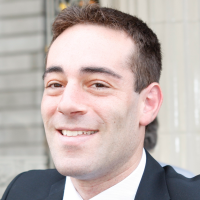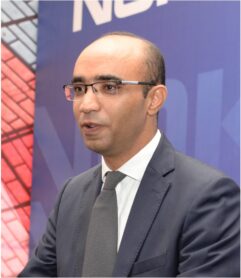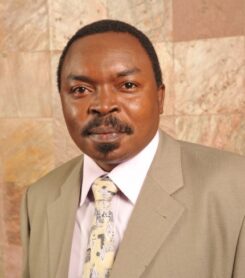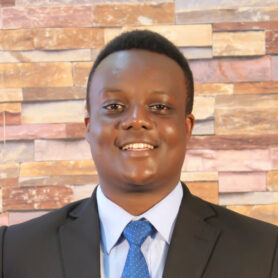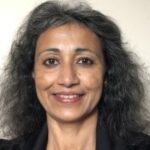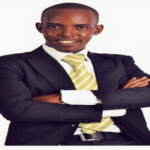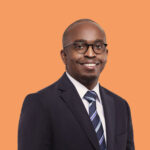INDUSTRY PANELS
The 2023 IEEE AFRICON Industry Panels are designed to provide an opportunity for the in-depth discussion of current and emerging topics of interest to the African community.
Click on the Panel Topic to view more details about it.
Panel Chair

Dr Fisseha Mekuria
Malmö University,
Sweden.
Dr. Mekuria has a PhD from Linköping University, Sweden, in wireless Communications and Signal Processing. He recently joined Malmö University in Sweden, prior to that he was a chief research scientist and emerging digital technology innovations leader at the council for Scientific and Industrial Research CSIR, headquartered in Pretoria, South Africa. He also worked for 10 years as Senior research Engineer at Ericsson Mobile Communications R&D lab in Sweden, and is author of 17 US/EPO patents.
He has published over 90 peer reviewed publications, Journals & book chapters. Working with mobile and internet service industry he directed the setting up of next generation network labs, development of mobile applications programming courses, Network resource sharing for affordable broadband connectivity, and development of telecom policy & regulatory frameworks and capacity building for telecom regulators in Africa. He has lead several technology projects (EU-FIRE Horizon2020 Future Internet, UNDP-AU-EU, ITU-Digital Transformation…), and contributes in technology standards (IEEE FNI, IETF, IEEE 5G-P2061 and ITU-WP 5D, ITU-AI4Good_WAI…). Dr Mekuria, has published several articles on 5G and led 5G workshops for IEEE Future Networks, 5G Dresden, 5G Korea and the ITU-Digital transformation for Africa symposium. Dr. Mekuria holds adj. Professorships at the University of Johannesburg and University of the Witwatersrand, in Johannesburg South Africa, where he is involved in developing postgraduate research and education in emerging wireless technologies, including innovation & sustainable digital entrepreneurship: https://www.mau.se .
Panel Co-Chair

Dr Jari Handelberg
Chairperson,
StartNorth, Finland.
He is the Chairman of the Board, Start North technology learning accelerator network, consisting of top universities and companies in the Nordics and around the world. The network has its offices in Helsinki and in Palo Alto, next to Stanford University. The network accelerates the learning and implementation of the latest technology all over the world and thereby promotes the world’s sustainable development.
Jari has more than 30 years of experience as an entrepreneur, a researcher and a consultant of new business venturing. He earned his PhD in entrepreneurship from the Aalto University School of Business. His most recent area of interest concerns a transformation of education system from the current model of educating students for a specific profession to a system that creates innovations in 5G & new job opportunities and professions. See more about Start North network https://www.startnorth.com
Expert Industry Panelists
Prof. Mjumo Mzyece
Mr Chalew Demille
Mr Albert Mwaniki
Dr Anwer Al Durami
Caroline Nyambura Muthee

Abstract
The IEEE Africon-2023 industry panel will address the growing need for a sustainable and contextually relevant deployment of 5G in emerging economies of Africa. 5G with its 3 pillar of standards EMB, MTC & URLLC is geared to enable smart industry and services globally. The history of previous generations of Mobile systems in Africa clearly shows that when operators and equipment providers open their labs for experimentation by young innovators, mobile applications such as the likes of MPESA which provided financial accessibility to several millions of unbanked subscribers can flourish and impact the sustainable socio-economic development of a society. The expert industry and academic panel will discuss current challenges of deployment of 5G mobile technologies in Africa, including solutions for the deployment of 5G end-to-end testbeds or so called 5G Fab-Labs, at several regionally representative university campuses in Africa. This could be used as a development framework for transformative and locally relevant innovative 5G services and a smooth migration and sustainable 5G networks in Africa. Furthermore, the Panel will also address how IEEE initiatives such as the Frugal 5G IEEE P2061 standard, and the IEEE Connecting the Unconnected (CTU) initiatives, are working to introduce transformative 5G wireless technologies in combination with emerging digital technologies such as AI, XR, IoT. What is the strategy to bridge the digital divide between the affluent Metro-cities and rural digitally excluded populations in emerging economies of Africa. Finally, the panel will debate possible sustainable business models and regulatory policy requirements for enabling innovative services and industry verticals possible with 5G and emerging digital deployments in Africa.
Panel Discussion Topics
- Best practices for a sustainable and innovative deployment of 5G in Africa
- Impact of 5G Test beds & Fab Labs for creating the MPESA’s of 5G.
- Sustainable business models for 5G in Africa: Industry Verticals & Relevant Services
- Global 5G activities and Initiatives for 5G Enabled Digital Business Creation
- The Potential of 5G to accelerat the use of Emerging Digital Technologies such as AI, IoT, Block chain and XR
- African Biodiversity protection & rescue using 5G and Emerging digital Technologies.
- Regulatory & Policy interventions to accelerate 5G deployment & Service uptake.
Panel Chair
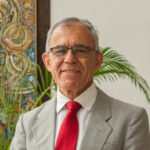
Prof. Izael Da Silva
Deputy Vice-Chancellor for Research and Innovation,
Strathmore University, Kenya
He is a renewable energy specialist with over 20 years of experience in both research and academic leadership. Currently, he is a Professor and the Deputy Vice-Chancellor for Research and Innovation at Strathmore University. He spearheads the UNITWIN/ UNESCO Chair on Climate Change Resilience and Sustainability at Strathmore University, which serves as a think tank and bridge-builder between academia, civil society, local communities, research and policy-making.
In addition, he is part of the Council of Engineers for the Energy Transition (CEET), an independent advisory council to the UN Secretary-General. He holds a PhD and a Master of Science (MSc) in Electrical Engineering, with a specialisation in Power Systems, from the University of Sao Paulo, as well as a Bachelor of Science (BSc) in Electrical Engineering, with a specialisation in Power Systems and Telecommunications, from the Federal University of Parana.
His research interests are renewable energy, the Sustainable Development Goals (SDGs), energy efficiency, climate change mitigation and adaptation, demand-side management, energy conversion, energy utilisation and conservation, renewable energy technologies, and renewable energy policies. He has written and published extensively in some of these areas.
1. Kenya Carbon Emission Reduction Tool (KCERT)
Abstract
Kenya Carbon Emission Reduction Tool (KCERT) is an open-source climate and energy system-modelling tool. KCERT was adapted to the local context following the general model structure of the MacKay Carbon Calculator developed by the Department for Business, Energy, and Industrial Strategy (BEIS) to calculate UK carbon emissions and future carbon pathways. KCERT follows the Calculator approach supported by BEIS international outreach work. KCERT calculates Kenya’s carbon emissions and allows for identifying and exploring the range of scenarios for cutting greenhouse gas emissions, including net-zero by 2050. The scenarios account for energy production, converted, and consumed showing the extent to which energy technology, behaviour and land-use change might affect the country’s greenhouse gas emissions. The tool covers five energy demand and supply sectors of the economy namely electricity generation, transport, industry, land use, and residential and commercial buildings.
Keynote Address
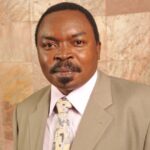
Eng. Isaac Kiva, OGW
Secretary, Renewable Energy Directorate, State Department for Energy,
Ministry of Energy & Petroleum Republic of Kenya
Panelists
2: Green Hydrogen (GH2)
Abstract
IRENA projects that Sub-Saharan Africa will lead in the production of GH2 under USD 1.5/kg by the year 2050 due to the abundant renewable energy resources and water availability. This positions Africa as a key player in the global production of the gas and will offer its member states various economic, environmental and energy security benefits. The development of GH2 will go hand in hand with energy transition. It will accelerate the construction of renewable energy systems to produce electricity for electrolysis. The development of renewable energy plants will reduce the reliance on fossil fuels and further improve energy access. GH2 can also play a role in energy storage for intermittent renewable energy sources such as solar and wind. The stored gas can provide reliable power for off-grid sites and improve stability of the interconnected grid. GH2 and its derivatives also have other applications in transport, manufacturing, processing and agricultural sectors.
Keynote Address

Prof. Izael Da Silva
Deputy Vice-Chancellor for Research and Innovation,
Strathmore University, Kenya
He is a renewable energy specialist with over 20 years of experience in both research and academic leadership. Currently, he is a Professor and the Deputy Vice-Chancellor for Research and Innovation at Strathmore University. He spearheads the UNITWIN/ UNESCO Chair on Climate Change Resilience and Sustainability at Strathmore University, which serves as a think tank and bridge-builder between academia, civil society, local communities, research and policy-making.
In addition, he is part of the Council of Engineers for the Energy Transition (CEET), an independent advisory council to the UN Secretary-General. He holds a PhD and a Master of Science (MSc) in Electrical Engineering, with a specialisation in Power Systems, from the University of Sao Paulo, as well as a Bachelor of Science (BSc) in Electrical Engineering, with a specialisation in Power Systems and Telecommunications, from the Federal University of Parana.
His research interests are renewable energy, the Sustainable Development Goals (SDGs), energy efficiency, climate change mitigation and adaptation, demand-side management, energy conversion, energy utilisation and conservation, renewable energy technologies, and renewable energy policies. He has written and published extensively in some of these areas.
Panelists
Prof. Izael Da Silva

Panel Organisers
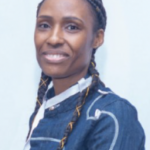
Dr Dithoto Modungwa
CSIR,
South Africa.

Dr Fisseha Mekuria
Malmö University,
Sweden.
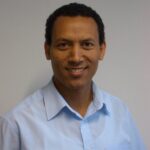
Prof. Waltenegus Dargie
Technical University of Dresden,
Germany.
Expert Industry Panelists
Dr L. Smith-Adao
CSIR,
South Africa
Expertise: Biodiversity and ecosystem services- fluvial geomorphology, aquatic and terrestrial ecology, biodiversity conservation planning, invasive alien plants, ecological infrastructure, ecosystem services, water resources planning and environmental management.
Dr Smith-Adao’s ’s research centres on land and freshwater ecosystems, namely their condition, services, links to social development, governance, and the implications of global change for these relationships.
Dr T. Mthombeni
Water Research Commission,
South Africa
Expertise: Commercialization Analysis, Financial Analysis, Project Management, Licensing, Marketing, and Business Development.
An experienced, passionate and results orientated Senior Manager of Water with over 15 years of progressive experience in innovation of Science, Engineering and Water sectors. Further experienced Innovation Professional with over 8 years of progressive experience in the Intellectual Property and Technology Transfer management. His main roles encompassed leading the formulation and advisory on deal terms and structuring where intellectual property is involved, ranging from R&D contracts to patent licensing.
Prof. Christina Bjerken
Associate professor in Materials Science,
South Africa
Research areas/Expertise: Materials science and engineering, fracture mechanics, hydrogen embrittlement, fatigue, bone growth, stress corrosion; phase-field theory, X-ray and neutron diffraction, interface mechanics, dislocation theory.
Associate professor in Materials Science, docent in Materials Science, PhD in Engineering Materials, MSc in Engineering Physics. Teaching material science and related areas at the undergraduate and postgraduate levels, as well as supervising doctoral students. Special interest in sustainable social development from an engineering perspective; bachelor courses and collaboration with partners within the field of humanitarian aid.
•
Abstract
Humanity and the planet’s biodiverse ecosystems are under threat. Africa’s unique biodiversity is not an exception, instead it is even more affected due to the ensuing climate change. According to the Intergovernmental Panel on Climate Change (IPCC) report released in 2022, the scientific evidence strongly suggests that impacts on ecosystems, including changes in ecosystem structure, species range and timing of seasonal life cycles, can be attributed to climate change. The global risks for global warming indicate that severe and widespread impacts are expected for unique and threatened ecosystems and species in Africa. In addition, extreme weather events, such as heatwaves, heavy rain, drought and associated wildfires, and coastal flooding are increasing and their effects are driving local and regional changes, with cascading impacts at a global scale.
With the continued socio-economic challenges, often fluctuating and extreme weather events frequently taking place both at continental and global scale, there is need for resilient economies and a healthier planet. The R&D community continues to explore and apply digital technologies such as unmanned aerial and ground platforms, robotics, sensor fusion, artificial intelligence, communication, hybrid high performance-computing, internet-of-things, etc. that enable processing of large amounts of data, from various sources and analysis thereof, for real-time monitoring, evaluation, analytics and conservation across various industries. The special session will focus on integration and deployment of emerging technologies and multiple-disciplines towards efficient, cost-effective and sustainable solutions in Biodiversity rescue and conservation.
Panel Organisers
Panel Chair
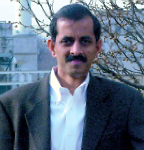
Ganesh Mani, PhD, MBA
Ganesh Mani is an Adjunct faculty member at CMU Africa and a Distinguished Service Professor of Innovation Practice on the main campus (Pittsburgh, USA) in its business school (Tepper). Ganesh has worked on scaling human expertise via AI in many milieus. He co-founded Advanced Investment Technology (one of the earliest start-ups to combine investment management and machine learning), which was acquired by State Street Corporation, creating its Advanced Research Center for helping manage multibillion-dollar institutional portfolios. Ganesh has contributed to other AI start-ups, including an entity that is now part of Nasdaq-listed iCAD, employing machine learning techniques for early cancer detection. Ganesh has an MBA in finance, a PhD in AI from the University of Wisconsin-Madison and a BTech in Computer Science from IIT-Bombay. He is past-President and long-term board member of TiE’s Pittsburgh chapter, co-MD of TiE Pittsburgh Angels; and on the advisory board of the FDP Institute as well as journals such as Financial Data Science and Patterns. Ganesh’s work has been patented, featured in a Barron’s cover story and published in leading academic journals and popular opinion pages. He has previously taught courses such as AI Grand Challenges (overlapping with AI and Emerging Economies) for the CMU Africa and Qatar students.
Expert Industry Panelists
Abstract
As the African continent continues to develop its technology sector, there is a growing need to explore the role of emerging technologies such as AI in driving progress and development. This panel will bring together experts from academia, industry, and policy to discuss the unique challenges and opportunities facing African countries in their efforts to leverage AI for economic growth and social impact. The panel will explore topics such as the potential for AI to improve healthcare and education outcomes, the role of entrepreneurship and international collaborations in promoting technological innovation, and the policy and regulatory frameworks that are needed to support these efforts.
Additionally, the panel will focus on the intersection of AI with product management and design, discussing how AI and data can provide valuable insights into local user behavior and preferences to inform product development and enhance user experiences. The panelists will also share success stories and best practices from their work in this field, highlighting the potential for AI to drive progress and transformation in emerging economies. Sustainability and comporting with UN SDGs will also be addressed. Overall, the panel will provide a platform for experts to share their perspectives and insights on this critical topic, and advance the conversation around technology and sustainable development in Africa.
